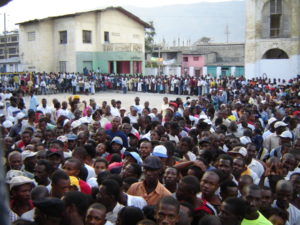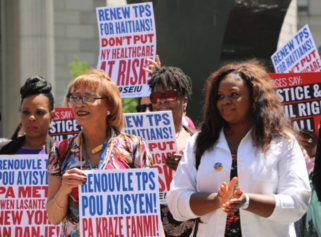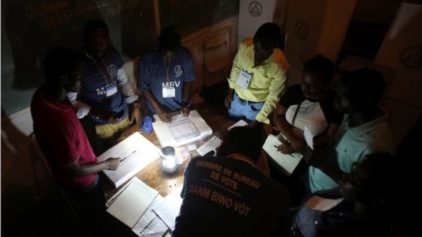
Unfortunately, evidence of overwhelming fraud discredits these results. If the putsch is successful, Haiti could have yet another U.S.-backed president with a weak democratic mandate.
The United States has a long legacy of destructive intervention in Haiti — whether through direct military occupation, support for heinous dictators, facilitation of coups d’état, or manipulation of the electoral process.
The election of Martelly in 2010 was a case in point, illustrating the lengths that the United States — along with the Washington-dominated Organization of American States — is willing to go to ensure that only politicians who comply with the policy dictates of elite interests hold power in the western hemisphere’s poorest country. The flaws in that election were profound: The most popular political party was prohibited from participating, and there was widespread disenfranchisement and fraud.
After the 2010 vote, an OAS panel of international experts, lobbied by then Secretary of State Hillary Clinton herself, intervened to move Martelly onto runoff elections, despite a lack of votes and an abundance of Haitian and international outcry. OAS Special Representative Ricardo Seitenfus described the maneuvers even then as a “silent coup d’état.”
Martelly went on to serve as a puppet for the interests of the international and Haitian elite, notably through his “Haiti is Open for Business” program, which promotes multinational investment in high-stakes extraction and development. Much of the land seized for these purposes has been taken from small farmers and other desperately resource-poor people.
The U.S. has provided Martelly enthusiastic support, with Secretary of State John Kerry, U.S. UN ambassador Samantha Power, and U.S. ambassador to Haiti Pamela White all offering statements of support in moments of crisis. Yet Martelly’s government failed to hold even one of the numerous constitutionally mandated elections for parliamentary and local offices. Martelly’s unwillingness to organize votes led to the dissolution of parliament after every member’s term expired in January 2015, allowing him to rule by presidential decree ever since.
Read the full story at fpif.org


